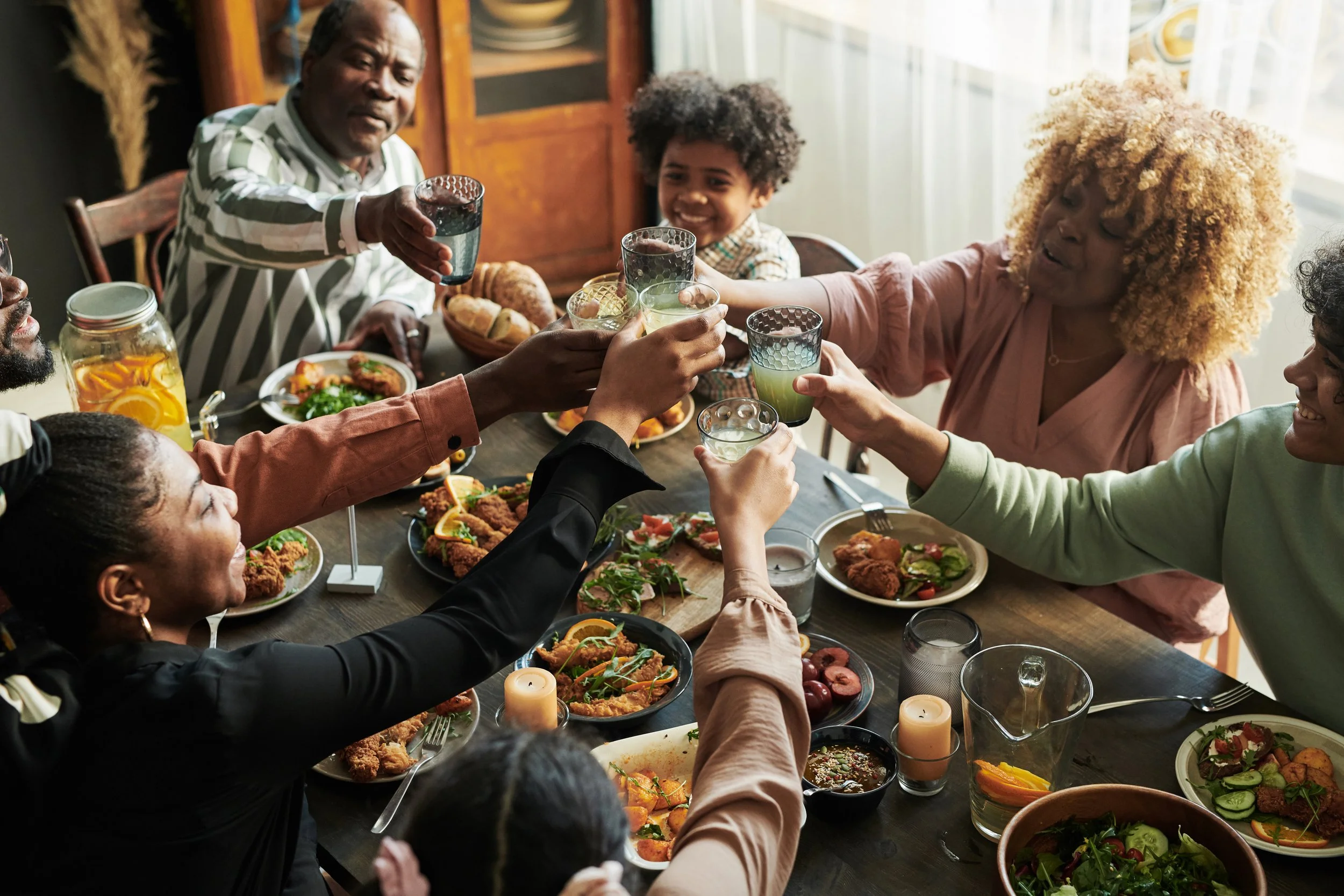The holiday season is often associated with joy, connection, and celebration, but for postpartum families, it can also bring stress, exhaustion, and a sense of overwhelm. Juggling a newborn’s needs, your own recovery, and the pressures of holiday traditions can feel daunting. Prioritizing self-care during this time is essential—not just for surviving the season, but for truly enjoying it in your own way.
Here are some tips for how postpartum families can navigate the holidays:
1. Embrace Simplicity
The pressure to maintain every holiday tradition can be overwhelming. Postpartum life is the perfect time to simplify. Focus on a few meaningful activities rather than trying to do everything. This might mean skipping elaborate meals in favor of a cozy potluck or foregoing long travels for virtual celebrations. Remember: the holidays can still be magical even when scaled back.
2. Communicate Boundaries
Family and friends may have expectations, but your health and well-being come first. Politely but firmly set boundaries that protect your time and energy. It’s okay to say no to gatherings, limit visitors, or keep the baby with you rather than passing your newborn around. Consider scripting responses in advance, such as: “We’d love to celebrate with you, but we’re keeping things low-key this year to focus on rest and recovery.”
3. Prioritize Rest
Newborns don’t understand holiday schedules. This means sleepless nights and irregular routines can persist. Make rest a priority whenever possible. Take advantage of quiet moments, delegate tasks, and don’t feel guilty about taking breaks to recharge.
4. Lean on Your Support System
Don’t be afraid to ask for help. Whether it’s someone bringing over a meal, running errands, or holding the baby while you shower, small acts of support can make a huge difference. If you’re partnered, check in regularly to share responsibilities and emotional support.
5. Practice Gratitude
Postpartum life can feel overwhelming, but finding small moments of gratitude can be grounding. Whether it’s a warm cup of tea, a snuggle with your baby, or a kind word from a loved one, recognizing these moments can bring a sense of calm and joy to your day.
6. Let Go of Perfection
This is not the season for perfection. The holidays don’t have to look picture-perfect to be meaningful. Focus on what truly matters: the health, happiness, and love within your family.
7. Take Care of Your Mental Health
Postpartum life can bring about a range of emotions, from joy to anxiety to sadness. If the holiday season feels overwhelming or you’re struggling, reach out to a trusted friend, a family member, or a postpartum therapist. There’s no shame in seeking support when you need it. Bridger Peaks Counseling offers postpartum anxiety and depression therapy at both their Bozeman and Missoula offices.
8. Celebrate Small Wins
Navigating the holidays with a newborn is no small feat. Celebrate the small victories—whether it’s getting through a holiday dinner, finding time to decorate the tree, or simply getting lots of rest. The holidays are a time for connection and love, but they’re also a time to care for yourself and honor this unique season in your life. By embracing simplicity, setting boundaries, and prioritizing your well-being, you can create a holiday experience that is meaningful and manageable for your postpartum family. This year, give yourself the gift of grace. You deserve it.
Take the First Step Toward a Joyful Postpartum Holiday Season
The holidays can be a challenging time for postpartum families, but you don’t have to navigate it alone. Whether you’re feeling overwhelmed by expectations, struggling with postpartum emotions, or simply need a supportive space to talk, help is available. At Bridger Peaks Counseling, we specialize in postpartum anxiety and depression therapy and are here to support you through this season. Together, we can create a plan to help you prioritize your well-being and find moments of joy and connection during the holidays.
Contact us today to schedule a session in our Bozeman or Missoula offices.
Learn more about postpartum by reading our blogs.
Let’s make this holiday season one of care, grace, and healing.
Additional Services We Offer in Bozeman & Missoula, MT
At Bridger Peaks Counseling, we’re dedicated to offering a diverse range of mental health services to support your unique needs. Our mental health therapists provide teen counseling, group therapy, Rising Strong workshops, and body image counseling. We also offer specialized care for depression, grief and loss, and online therapy options. Other services include EMDR, trauma therapy, and psychiatric care.











